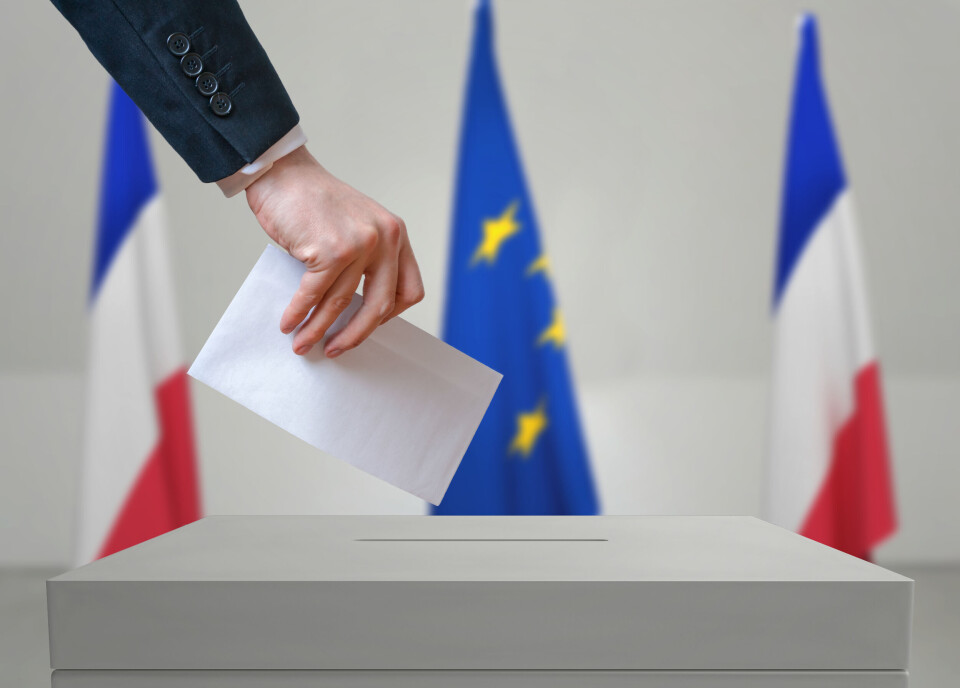-
Inheritance law challenge in France: What could be the next steps?
The European Commission's decision on France's controversial 2021 inheritance law could lead to significant legal changes
-
‘No evidence third party involved’ in deaths of British couple in south-west France
Investigators update The Connexion on Dawn Kerr and Andrew Searle case
-
MPs push to remove low emission zones in France
Critics say the zones penalise lower-income households, but the government has warned abolishing them could cost billions
Which French election candidate does your mayor support? How to check
Presidential hopefuls must gather 500 signatures each from elected officials to be able to stand. The first count has just been revealed

The first count of parrainages - signatures from elected officials supporting presidential candidates and a crucial part of the French election process - was revealed last night (February 1).
President Emmanuel Macron has so far received the most signatures validated by the Conseil constitutionnel at 105, with Anne Hidalgo (Parti socialiste) coming in second with 48 and Valérie Pécresse (Les Républicains) third with 34.
What are these signatures for?
The first round of France’s presidential election will take place on April 10 but in order for a candidate to stand, they must receive 500 parrainages.
These signatures must come from officials in at least 30 different departments, with no more than a tenth of them from one single department.
Elected representatives who can give a signature include MPs, senators, representatives of the European Parliament, mayors and presidents of local authorities, councillors of Paris and the Metropolis of Lyon, as well as departmental and regional councillors. In practice, most signatures come from mayors.
There are around 42,000 people eligible to give a candidate their signature. Each can only back one candidate. In 2017, only 14,296 signatures were given.
Who did my major or local official vote for?
You can see who your local elected officials voted for, whether it is the mayor, regional or departmental councillor, or other, on a site dedicated to the elections here.
Scroll down to the search function, as shown in the picture below:

You will then see the name of your elected official and who they have backed (if they have so far given their signature).
Alternatively, you can see Franceinfo’s article on the parrainages, which has a list at the bottom of all the officials who have so far voted. You can scroll through to find your commune.
How many signatures do the candidates have so far?
The first count of these shows that current President Emmanuel Macron has already been backed by 105 officials.
A person can receive signatures without actually officially declaring themselves a candidate, as is the case for Mr Macron who is yet to announce himself in the race, even though he is expected to do so.
He justified his decision to delay declaring his candidacy in an interview with La Voix du Nord yesterday (February 1), saying he wanted to concentrate on more pressing matters first.
“I am first of all determined that this serious phase of the epidemic and the peak of the current geopolitical crisis should be behind us,” he said in reference to Covid and current tensions between Russia and Ukraine.
His decision does not seem to have affected his support among elected officials.
The table below shows that for the moment, he has by far gathered the most signatures.
He is followed by Paris Mayor Anne Hidalgo of the Parti socialiste. This is despite the fact that she recently came only fifth in a citizens’ primary on left-leaning candidates.
Read more: Christiane Taubira wins the French left’s citizen vote: what now?
Other candidates likely to challenge Mr Macron in April are Valérie Pécresse of Les Républicains (centre-right) and Marine Le Pen of Rassemblement National. The latter of the pair has so far only received two signatures.
March 4 deadline for signatures
At this stage, the number of parrainages is not decisive, as candidates have until March 4 to reach the required 500.
In 2017, 11 candidates successfully gathered 500 signatures. This was out of a total of 61 names.
François Fillon, who was candidate for Les Républicains, received the most signatures, with 3,635.
Benoît Hamon, who stood for the Parti socialiste, came second with 2,039 signatures. Macron received 1,829 and Mélenchon got 805.
Marine Le Pen, who went on to face Emmanuel Macron in a second round of voting in the 2017 elections, received 627.
The system of parrainages began in 1962 under President Charles de Gaulle, with the intention of limiting the number of fringe candidates. At the time, candidates only required 100 backers. This was increased to 500 in 1976 to further limit the number of candidates.
Related stories:
Signatures, power transfer: key dates for French presidential election
500 signature rule: Zemmour may struggle to stay election candidate
French political parties: What killed off the Left and can it recover?
1,400 experts say French presidential candidates must address climate
























